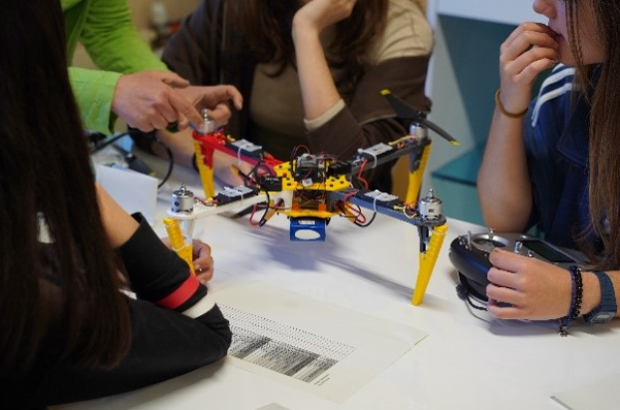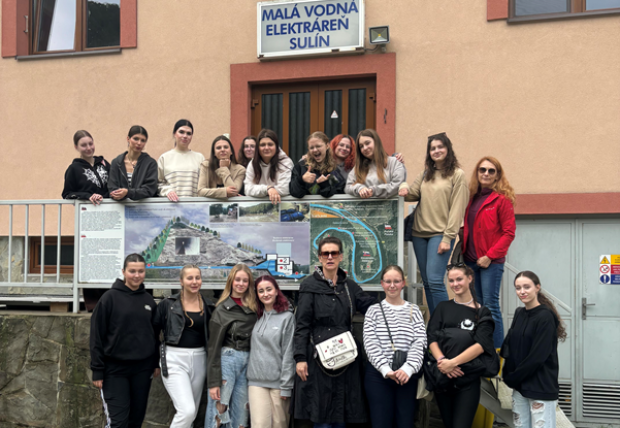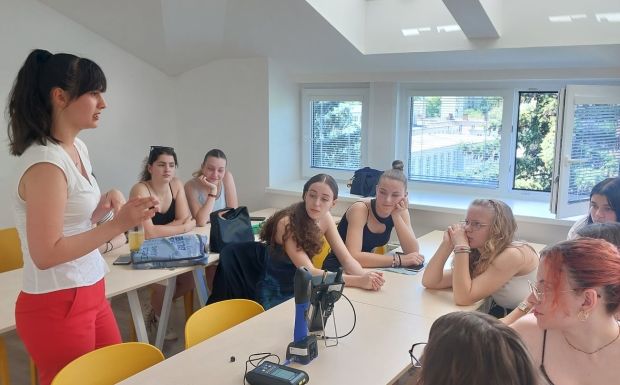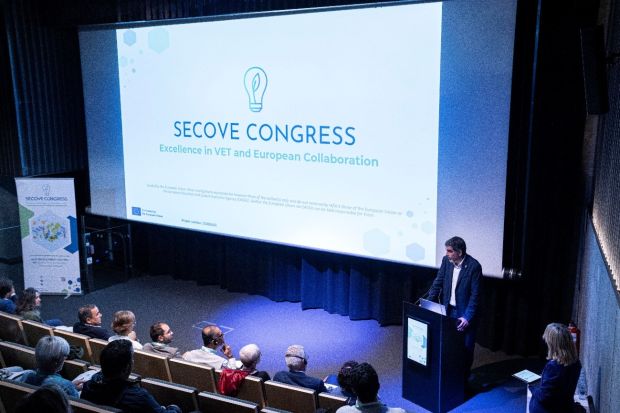The activities during the first few months of SECOVE

Work Package leaders took the initiative to kick off the activities over the first summer months of SECOVE implementation.
WP1, WP2 and WP8 under the magnifying lens.
After briefly meeting with each other towards the end of June, the partners of SECOVE focused on their own tasks for the summer months of 2022. Having reached a first agreement on the cooperation and management of the project, it was time for Work Package leaders to mobilise their own teams.
Project Management & Coordination
How do you manage a large, international team such as the SECOVE one? The challenge is not an easy one for the project coordinator, the University of West Attica. Having built experience in transnational projects coordination in other educational fields (SMARTEX – Modernisation of curriculum of Textile Engineering and Textile Technology in Indonesia, Malaysia and Pakistan), this time the team of UNIWA has to work and coordinate two central Packages in SECOVE: together with Management & Coordination, UNIWA leads also the Set up, governance and funding of SECOVE Platform (WP2).
Regarding Management & Coordination, UNIWA established the use of MS Teams for day-to-day cooperation and storage units for simple retrieval of files. Cooperation on this platform proves to be accessible for all partners, sorting tasks and announcements in a clear and structured way. 📌
Small processual adjustments were carried out – as the whole process instead led to the development of the Management Handbook and, important as well, the organization of the Kickoff Meeting in September.
Set up, governance and funding of SECOVE Platform
SECOVE intends to be a network of Centers of Vocational Excellence (CoVEs) in line with the aspiration of the Erasmus+ call funding the project (ERASMUS-EDU-2021-PEX-COVE). The idea behind this is to create nationally-based networks inspired by the principle of vocational excellence, whose goal is to establish a structured form of cooperation among actors engaged in the sustainable energy industry.
The first challenge is to identify relevant players that can contribute to the definition of the Vocational Excellence principle, as well as engage the other partners to bring about sustainable change in the industry and work along the main components of the CoVEs:
Governance
Learning and Teaching
Network
What kind of organisations were identified?
- VET organizations: training centres, networks
- Policymakers
- Small and medium-sized enterprises
- Research centres
The months of July and August were dedicated to this first delicate task: sorting through national databases and contacts with an eye to the first workshop, to be organised in autumn, kicking off the activities of the National CoVEs networks.
Impact & Dissemination
Another Greek organization is leading the coordination of the transversal Work Package 8, dealing with Impact & Dissemination – IDEC SA.
Clearly, the question to be addressed is crucial for SECOVE: how will the CoVEs create an impact? In other words, how will they contribute to long-term and sustainable change in their areas of action? Different sectors will be touched by the activities of SECOVE:
- New educational and training material, employing cutting-edge technologies.
- Creation of synergies between VET organizations and industry to boost internationalization and mobilities
- Fostering a culture of Quality and Innovation through different initiatives
- Raising awareness and promoting gender equality in STEM areas
In other words, SECOVE has the potential to organize 28 local and transnational workshops,
as well as networking events with stakeholders (for a total of 590 participants), mobilities (benefitting 45 VET students), 9 Summer VET academies for girls in secondary education (180 participants expected), 4 capacity building events (training of 89 persons from partner organizations) and finally 3 Transnational Conferences (for a total of 210 participants).
Where to start then?
SECOVE Brand Identity
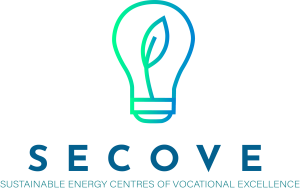 The logo of SECOVE was the first step towards achieving a solid identity among different initiatives in this sector.
The logo of SECOVE was the first step towards achieving a solid identity among different initiatives in this sector.
Recalling the principles of sustainability and energy, our silver lining, the SECOVE logo helps the project stand out as a smart initiative in the vast landscape of green activities.
The leaf at the very heart of the bulb stands for the inner sustainability at the core of SECOVE. This is what lies at the heart of the project.






